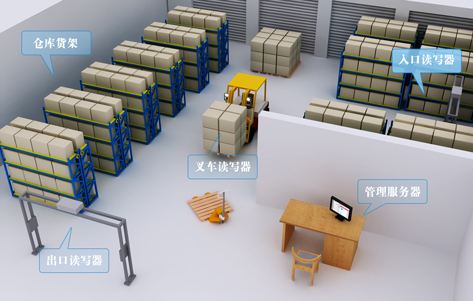
RFID emergency supplies warehouse management opens a new direction for guarding
[ad_1]
The RFID warehouse management system adopts RFID technology for automatic information collection, so that all aspects of warehouse management are fast and accurate. RFID technology automatically collects data from various operations such as warehouse arrival inspection, warehousing, outgoing, inventory counting, and realizes accurate data collection and transmission of multiple batches of goods at one time, greatly improving work efficiency. When the items are registered in the warehouse, the RFID electronic tags are bound to ensure the speed and accuracy of data input in each link of the warehouse management, to ensure that the real data of the inventory is grasped in a timely and accurate manner, and the inventory is reasonably maintained and controlled. RFID emergency supplies warehouse management opens a new direction for guarding.
Based on RFID identification skills, the factory’s RFID emergency material warehouse management system can identify, track, handle and inspect the information of goods. The combination of RFID identification skills and computer database query processing can automatically identify goods information, which greatly saves manpower and material resources. For example, by attaching a label to a car in production, the employees of the manufacturer can track the progress of the car on the production line. The warehouse can track where the medicines are stored. The composition and functions of the warehouse management system include management sub-systems, storage and shelf management sub-systems, picking warehouse management sub-systems, delivery management sub-systems, inventory management sub-systems, and warehouse forklift personnel management sub-systems.

Advantages of factory RFID logistics management:
RFID technology has the characteristics of non-contact, long-distance multi-tag group reading, etc., and has advantages in warehouse management:
Recognize automatically:
In the RFID storage management system, all objects that need to be identified in the warehouse are affixed with rfid electronic tags, and the information corresponding to their status is also recorded in the rfid electronic tags, as long as the information of the electronic tags is read by readers. The management system can judge targets based on numbers that cannot be changed. The whole process does not require manual intervention.
Quick operation:
RFID recognition skill is a non-visual recognition skill. It uses a radio signal query mechanism to interact with RFID tags through RFID readers (such as handheld readers, forklift readers), so the identification process is very fast.
High reliability:
In the operation of the RFID emergency material storage management system, the information transmission and changes in the intermediate process are automatically completed. No human import can completely avoid the mistakes that may be formed by the manual operation of the information in the intermediate process, and improve the reliability of the information.
Good monitoring:
Because the RFID storage management system has the function of automatic target identification, it can know any operating system out of the library. The alarm of the fault operation alarm system in the system can prompt the staff immediately and urge them to correct the fault operation. Otherwise, the alarm status will not change and will be automatically recorded in the database.
Significantly improved efficiency:
On the basis of eliminating manual information changes and preventing automatic errors, the entire warehousing operation will become smooth, tight, orderly, reliable, and recorded. Therefore, the work quality can be greatly improved, and the work efficiency can be greatly improved.
RFID emergency supplies warehouse management automates data collection and makes data statistics more efficient. RFID implements management and control on all links of warehousing, and standardizes operations in all links such as warehousing, outgoing, and inventorying of warehousing materials. Warehouse operators perform rapid processing of operations such as entering, leaving, moving, inventory, and ingredients of inventory items, greatly utilizing the storage space of the warehouse, and optimizing the storage capacity of the warehouse. Let the utilization rate of warehouse storage space get a better grasp, continuously reduce inventory costs, and enhance market competitiveness.
[ad_2]



